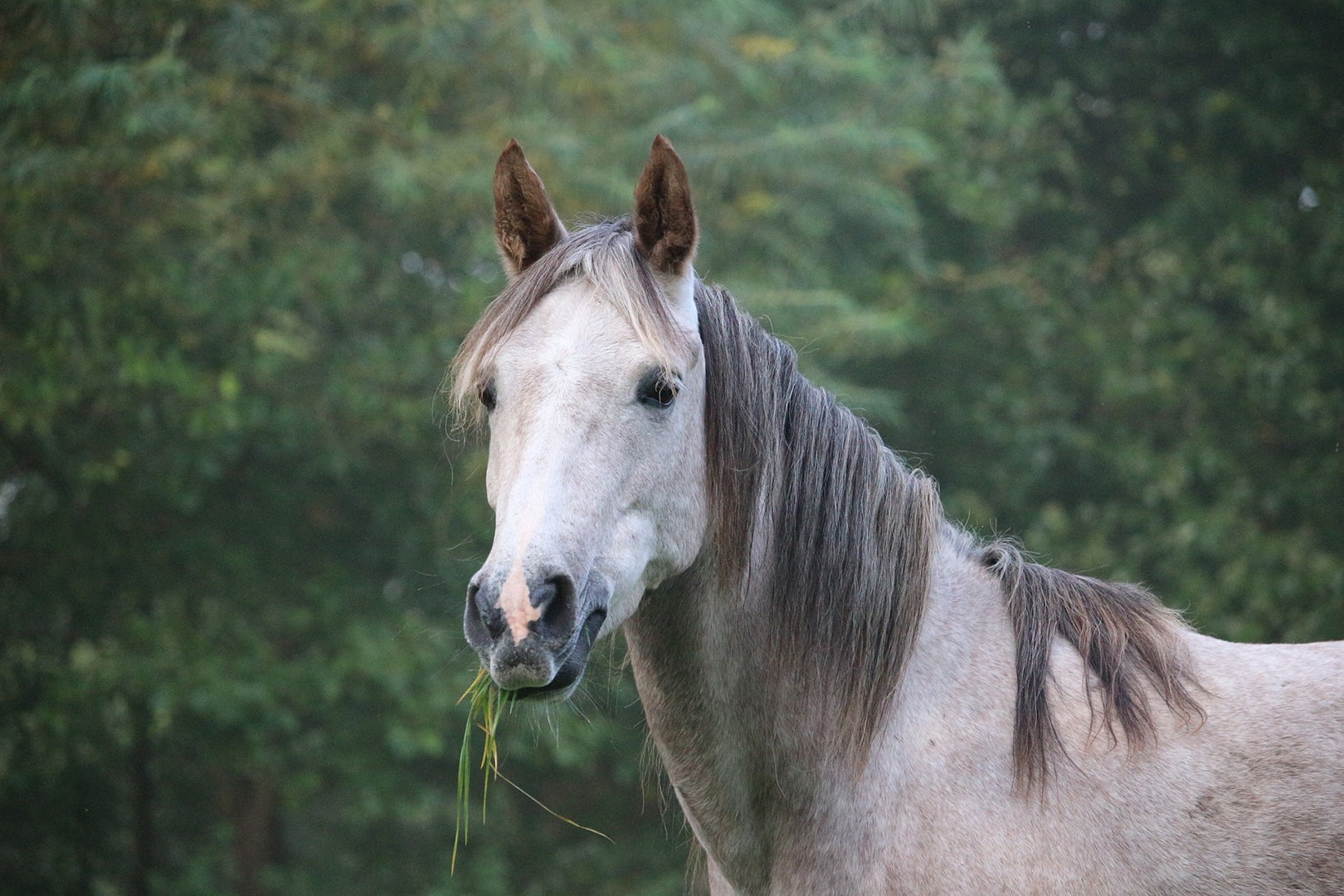Pet Talk: Hay is for Horses: Maintaining a Proper Equine Diet
Published 4:04 am Saturday, August 24, 2019
Nutrition plays a large role in a horse’s energy level, performance, and overall health. There are many feed and treat options available for horses, but some are more important than others for a complete and healthy diet.
Dr. Leslie Easterwood, a clinical assistant professor of equine community practice at the Texas A&M College of Veterinary Medicine & Biomedical Sciences, shares her recommendations for a proper equine diet.
“Components of most horse diets are roughly divided into two sections: grain concentrate, either pelleted or whole grain, and roughage, such as hay or fresh grass,” Easterwood said.
She recommends feeding 1 percent of a horse’s body weight as concentrate and 1 to 2 percent as roughage, with adjustments made to suit the horse’s activity level and ideal weight. Proper amounts of high-quality grain and roughage are essential for adequate nutrition and fiber intake and can help avoid health issues like colic.
There are many options for delicious treats for horses, such as carrots, apples, and commercially made treats, but they should only be fed in small quantities.
As with any other pet, there are special considerations for owners when making changes to a horse’s diet.
“The most important factor when considering a diet change is to gradually change from one type of foodstuff to another, allowing the gastrointestinal tract to adjust to the new foodstuff or amount,” Easterwood said.
Horses also can benefit from eating several small meals each day, rather than a few large meals.
“Wild horses are designed to intake small meals throughout the day,” she said. “This keeps their gastrointestinal tracts active and healthy. Meal feeding is not what their systems were designed for, but it is the standard practice for horse owners.”
When assessing the effectiveness of an equine diet, horse owners should watch out for signs of both undernutrition and overnutrition. Luckily, Easterwood said it is usually easy to tell if a horse is gaining or losing weight.
“A poor, dull hair coat can also be an indicator of poor nutrition or parasite infestation,” she said.
Undernutrition, either from too few calories or a lack of certain nutrients, can have obvious consequences on a horse’s weight, energy, and overall health.
Similarly, overnutrition, which can refer to obesity or the excessive intake of specific nutrients, can stress a horse’s heart and lungs, increase disease risk, and cause greater lethargy, according to the American Association of Equine Practitioners.
An equine veterinarian can help you develop the best possible diet for your horse, tailored to its individual needs. A well-fed horse will be happier and healthier and will have more energy to spend time with its owner.
Pet Talk is a service of the College of Veterinary Medicine & Biomedical Sciences, Texas A&M University. Stories can be viewed on the web at vetmed.tamu.edu/news/pet-talk. Suggestions for future topics may be directed to editor@cvm.tamu.edu.






